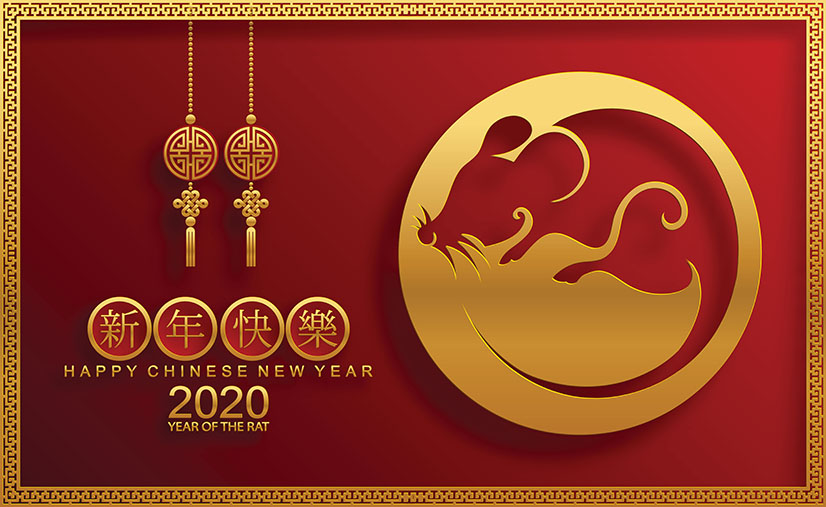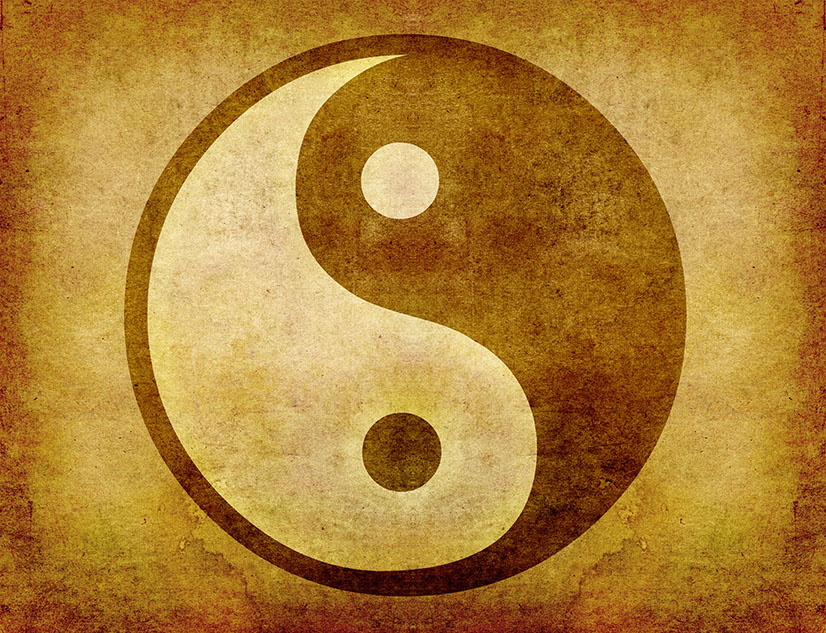
“It is not the movement of the clock that produces the newness of life. It is the movement in your mind.” ~ T.D. Jakes
By Susan Tretakis – Coral Springs, Florida – And somewhere, mid-December, my mind went into “park”. I was stuck. While I write this in late January of 2020, let me just say the past three or four weeks have vividly reminded me of my human failings – and the need for Traditional Chinese Medicine in my life.
To recap:
Those of you who are regular followers know that I began my TCM journey in October of 2016. With nutritional support and advice, Acupuncture and Chinese herbs, by October of 2017, I had lost 100 pounds. By April of 2018 – (my birthday) – I lost another 70 pounds. In October, 2018, I marked one year of keeping that 170 pounds off. In October of 2019, I celebrated a second anniversary of keeping the weight off.
Trust me, I was a believer in TCM. After years of various diet and exercise programs, I had found THE one. YAY me!!
With all of my post-graduate studies in psychology, with all of my study of Traditional Chinese Medicine philosophy and with all my non-stop questioning of my acupuncturist, I had no idea that I was repeating a very dangerous personality trait. In these three years I was no longer defining myself by my profession or family status; I was now defining myself as a successful Acupuncture and TCM 170 pound weight loss “poster child”.
I still was not accepting, or accepting, my “human-ess”.
Obviously, my vision care plan did not pay for the lenses to see this bright red flag.
On September 4, I underwent a bi-lateral knee surgery. My surgeon assured me I was the – again – “the poster child for success” because of my weight loss. My acupuncturist worked with me pre surgery to prepare my body with herbs and strategically placed needles. In rehab, therapists and doctors commented on my incredible progress.
Truthfully, I was basking in the glow. Basking a bit too much. By November, when walking was easier and more possible, I said “yes” to every invitation. I went everywhere – ate with everyone, accepted every celebratory drink. “Here’s to me” were the toasts of friends – and truthfully – I had had a hell of year, didn’t I deserve every celebration?
I “celebrated” Hanukkah with potato pancakes, I “celebrated” with dinners of lasagna and baked ziti with friends in from New York. I “celebrated” Christmas Eve with an incredible “dinner of Seven Fishes”; hey, fish was healthy – so why not? I “celebrated” Christmas Day with friends from Miami with roast pig – not just the meat, but the crispy, crackling skin! New Year’s Eve celebrations and New Years’ Day brunches – yes – that’s plural – did not help.
Interestingly, since much of my clothing is fitness oriented – and therefore – stretchable – it was not until I moved to “real” clothes – that with zippers that I noticed something – as in – why are these pants tight?
Trust the zippers on your jeans to tell you the truth. I headed to the scale – and as 2020 dawned – my scale confirmed what my clothes already knew.
I tend to not like January as a month. Traditionally, the New Year fosters too much negativity. Thanks to media – print, television, and social – we become out own worst enemies. Gym memberships soar, at home fitness equipment sales escalate, and our self-love plummets. We tend to race to improve ourselves. We tend to forget out unique “human-ess”.
And, if for nothing else, this is why I love the basic philosophy and tenets of Traditional Chinese Medicine.
Yes, my weight gain stressed me. I was anxious and worried that I was now backsliding and would not able to stop. I was angry at myself – and also, if you can believe it – at the many people who had issued me invitations. I was irritable; I was incredibly guilty.
Did I need to cancel my acupuncture appointments or just waddle in and pretend nothing had changed?
Traditional Chinese Medicine believes depression, sadness, mood swings, hysteria, anxiety, frustration and almost all negative reactions are typical of Qi (energy) stagnation and negatively affects one’s ability to be comfortable. According to TCM, ones spirit resides in the liver and its proper function is manifested by mental strength. Liveliness, creativity, ideas, having a sense of purpose, goals, courage and self-direction all relate back to your Qi. An unbalanced, or stagnant Qi makes your soul hurt.

In TCM, emotional disorders frequently relate to disharmonies involving what is referred to as The Five Spirits. These are the Hun, the Po, the Zhi, the Yi, and the Shen. At first glance, they may appear to be difficult to understand, but there is a definite link to many Western psychological and physical treatments.
- Hun – The Hun is associated with the Liver Qi. Hun is called “noncorporeal”, because it is not dependent upon physical being for existence and continues after death. This spirit is responsible for benevolence (loving kindness), awareness of suffering, empathy, compassion, and tolerance; and serves as a reservoir for ideas that bring meaning into life.
- Po – The Po exists only during physical life. Associated with the Lung Qi, the Po animates the being, is responsible for sensation and for emotional and physical responses to circumstances; it promotes justice and fairness. Disharmonies of the Po may lead to complicated grief, sadness, a blunted affect, a tendency to overreact, or unjust/immoral behavior.
- Zhi – The Zhi is the will (i.e., the force that determines the basic trajectory in life). Zhi is the spiritual aspect that resides in the Kidneys. The Yang (or active) Zhi provides the motivation for self-determination and the Yin (or passive) Zhi leads one down the path to an unknowable fate. Disharmony may cause illogical fears or, the opposite, reckless behaviors.
- Yi – The Yi might be called the intellect. It is the platform for conscious reasoning. The Yi enables creative vision and proper courses of action. The Yi is associated with the Spleen, and disharmonies may lead to worry and overthinking (perseveration).
- Shen – By allowing the inner being to connect with the outer world, and the outer world to connect with the inner being, the Shen might be considered the “connector spirit.” In that sense, it is responsible for both inward and outward expressions of spiritual nature and for the establishment of meaningful relationships. It is also the mind, where thoughts and feelings are experienced. Associated with the Heart Qi, disharmonies of the Shen may lead to edginess, shyness, social awkwardness or, in extreme cases, agitation and delusions.
Whatever the month, the bottom line is that good health is built on behaviors. Just as many religions have a day of rest – a day to push our inner “reset” button, TCM encourages one to identify what they are feeling and to bring awareness to our body practices.
I was ready to be re-set.
Very early in my acupuncture treatments, my TCM doctor had given me an informal checklist to use to monitor myself and food. My diet was then – and apparently again now – disrupting my Five Spirits. It was time to review the very basic questions he always asks me when I ask for a diagnosis of anything:
- Was I sleeping?
- What was I eating – and when?
- Am I moving my body?
- How much time am I spending indoors vs outdoors?
- What chemicals – from food and drink – am I putting in my body?
- How is my breathing?
- What foods was I craving?
- Am I sluggish or feeling heavy?
- How is my digestive system?
- What am I eating that is different from what I usually eat?
For the past 3000 years or so Traditional Chinese Medicine scholars have been studying, applying and refining the art and science of living well. TCM practitioners refer to this as “Yang Sheng” or the nourishing of life tradition. For me, it took a short time to see where my excess was, where I was lacking and what I needed to do to bring myself back into balance.
In TCM, “shame” is defined as how one appears to the members of the community, not how one feels inside. “Guilt” is a dark emotion, inner-directed, and as such, is an emotion from which there is no escape – whether others see it or not. I surrendered my guilty feelings immediately; after all, I was human, and now I was on the attack.
As strange as it sounds to Westerners, “shame”, for me, became my fuel for self-repair.
“Shame” had me clearing out my refrigerator and pantry of all those holiday treats. “Shame” had me befriending every known vegetable available at local markets. “Shame” had me cooking my own food again. “Shame” had me drinking more water in a day than ever before. “Shame” led me away from coffee and back to teas. “Shame” led me to smarter lifestyle choices, more physical activities and wiser acceptances of social invitations.
“Shame” allowed me to keep my acupuncture appointments.
“Shame” is a powerful ally; within 2 weeks I had dropped the extra weight I gained and had a renewed sense of self. Most importantly, I was no longer berating myself with negative self-talk, overthinking and suffering from anxiety. In short, “shame” worked for me.
It has been said that shame should be attributed to those things we choose to do. The beauty of TCM reminds us that while we cannot change or fail to acknowledge what we have done, we can identify it and therefore learn from it. TCM reminds you that you do not have to live every minute with regret and guilt. TCM teaches you that you can move on with increased self-knowledge and understanding.
Even in the month of January!
Sources:
- Dr. Landon Agoado, Care Wellness Center
- https://www.elephantjournal.com
- https://pacificacollege.edu/news
- https://www.tcmworld.org/how-do-we-forgive-let-go/
- https://giovanni-maciocia.com/on-shame/
- https://tcmherbs.eu/2018/07/13/psychological-problems-tcm/
- http://maciociaonline.blogspot.com/2011/04/on-guilt.html
- https://www.ncbi.nlm.nih.gov/pmc/articles/PMC3870484/
- https://www.rewildingmedicine.com/10-self-healing-body-practices-of-traditional-chinese-medicine/
